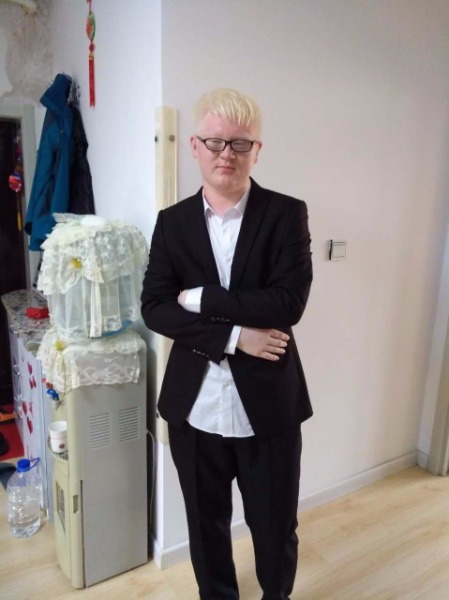Changes help more disabled students to take gaokao


Ending exclusion
Han, Wang and Wei all attended mainstream schools from primary level, so it was natural for them to take the gaokao like their classmates.
However, most children with disabilities attend special schools. While the government has provided a large amount of funding and resources to ensure these schools have good buildings and dedicated, qualified teachers, some observers feel they separate children with disabilities from other local students.
"These schools usually serve a specific condition, such as a hearing or visual disability, so students who do not fit into those categories are unable to attend," said Sun Tao, a teacher at a special high school, who is visually impaired.
He noted that students with disabilities have traditionally only been provided with limited study choices in higher education. For example, those who attend schools for the blind or visually impaired often become masseurs or piano tuners because colleges usually only offer them those majors or related subjects.
He applauded the recent changes. "This group of people has been waiting for assistance in the gaokao for a long time. Without a doubt, we are making great progress and ensuring that people with disabilities can have convenient and equal access to the exam," he said.
He urged examining bodies to adopt a flexible approach to the regulations.
"Many different and specific needs may arise in the gaokao for people with disabilities, not limited to those listed in the regulations," he said. "I hope all of their needs can be met, within reason."
Zhou Haibing, founder and CEO of Easy Inclusion Consulting in Beijing, which promotes the inclusion of disabled people in mainstream society, said a great deal remains to be done to end discrimination and ensure people are not excluded from activities.
"The assistive measures should be extended to exams at all levels of education, such as the high school entry exam, because many students drop out if their scores are not high enough to gain admittance to high schools or college," he said.
Zhou said teachers should be given more training in inclusive teaching methods, and schools should be provided with sufficient resources to build barrier-free facilities.
He added that inclusive education does not just benefit children with disabilities, but can improve the experience for everyone because teachers learn to accommodate the needs of all learners.
Contact the writer at zoushuo@chinadaily.com.cn
- Jimmy Lai found guilty of violating national security law
- Hong Kong court opens session to deliver verdict on Jimmy Lai's case
- Affordability ranks high for overseas study choices
- Jiangxi valley goes viral, wrongly tagged Japan
- China plans to expand cover for childbirth-related bills
- Non-living 'life releases' in Liaoning condemned




































